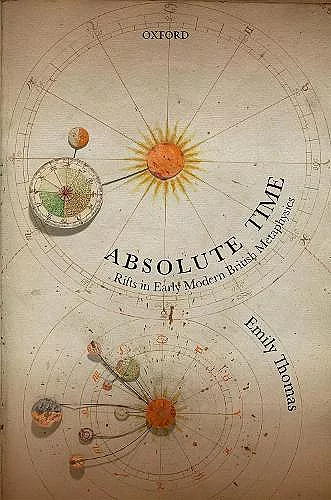Absolute Time
Rifts in Early Modern British Metaphysics
Format:Hardback
Publisher:Oxford University Press
Published:5th Apr '18
Currently unavailable, and unfortunately no date known when it will be back

What is time? This is one of the most fundamental questions we can ask. Traditionally, the answer was that time is a product of the human mind, or of the motion of celestial bodies. In the mid-seventeenth century, a new kind of answer emerged: time or eternal duration is 'absolute', in the sense that it is independent of human minds and material bodies. Emily Thomas explores the development of absolute time or eternal duration during one of Britain's richest and most creative metaphysical periods, from the 1640s to the 1730s. She introduces an interconnected set of main characters - Henry More, Walter Charleton, Isaac Barrow, Isaac Newton, John Locke, Samuel Clarke, and John Jackson - alongside a large and varied supporting cast, whose metaphysical views are all read in their historical context and given a place in the seventeenth- and eighteenth-century development of thought about time.
Thomas's book contains a number of productive discussions, and it could prove a catalyst for further investigations into early modern spatiotemporal metaphysics. * Edward Slowik, Journal of the History of Philosophy *
this is a fascinating book. Whether you agree or disagree with any particular thesis in it, it will make you rethink, look afresh at familiar writings, and with interest at unfamiliar ones * J. J. MacIntosh, H-Albion *
ISBN: 9780198807933
Dimensions: 241mm x 164mm x 21mm
Weight: 542g
254 pages